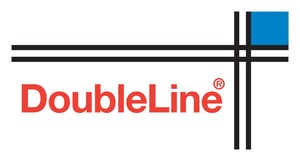
DoubleLine Shiller Enhanced CAPE Fund Opens to Investors
Equity Strategy Based on Long-Term Stock Valuation Principles Developed by Dr. Robert Shiller
Fixed Income Strategy Actively Managed by DoubleLine Capital
DoubleLine CEO Jeffrey Gundlach and Jeffrey Sherman Serve as Portfolio Managers
LOS ANGELES, Oct. 31, 2013 /PRNewswire/ -- The DoubleLine Shiller Enhanced CAPE (the Fund), a mutual fund combining active fixed income investment management by DoubleLine Capital LP with a stock market strategy incorporating value investing principles developed by Robert Shiller, opened today to investors. The no-load, open-end Fund is open to investors via I shares (DSEEX) and N shares (DSENX).
Jeffrey Gundlach, Chief Executive Officer and Chief Investment Officer of DoubleLine, and Jeffrey Sherman, an asset allocation specialist at DoubleLine, are the portfolio managers of the Fund.
"The combination of DoubleLine and Robert Shiller in one investment strategy marks an innovative new opportunity for investors, one based on discipline and value," Mr. Gundlach said. "With its implementation of Dr. Shiller's long-term value strategy, the Fund complements the growth stock strategies launched by the DoubleLine Equity team earlier this year."
"I am very pleased with today's launch," Dr. Shiller said. "The Fund allows investors to access the Shiller Barclays CAPE® US Sector Index in mutual fund format with DoubleLine, combining two complementary, value-orientated approaches across both equity and fixed income markets."
The Fund seeks to deliver a total return in excess of the Shiller Barclays CAPE® US Sector TR USD Index (the Index). DoubleLine will seek to invest 100% of the Fund's net assets in a debt instruments. Part of those holdings will be pledged as collateral against derivatives exposing the Fund to the four most undervalued sectors in the U.S. stock market as measured by the Cyclically Adjusted Price Earnings ratio (the CAPE® Ratio). Thus through leverage, the Fund seeks to have simultaneous exposures both to the Index and to debt securities, each in an amount potentially up to the value of the Fund's net assets.
The Index and the CAPE® Ratio incorporate principles of long-term stock investing distilled by Dr. Shiller. To the extent the derivatives strategy leaves a substantial portion of the Fund's assets available for other investment, DoubleLine will seek to manage the unreserved debt instruments to generate a supplemental source of long-term return. The Fund's holdings of debt instruments may be similar to those of the DoubleLine Core Fixed Income Fund, although the two portfolios are likely to differ in a number of respects (such as, for example, the amount of holdings in cash or short-term investments). DoubleLine may determine to invest a portion of Fund assets directly in the DoubleLine Core Fixed Income Fund in lieu of investing directly in a portfolio of debt instruments.
About Robert Shiller
Sterling Professor of Economics at Yale University and Professor of Finance at Yale School of Management, Dr. Shiller has conducted research on financial markets, asset prices and macroeconomics. His work includes breakthrough findings on the relationship of stock price volatility to long-term returns. In 1981, Dr. Shiller set the stage for the Cyclically Adjusted Price Earnings ratio (the CAPE® Ratio) in his paper, "Do Stock Prices Move Too Much to Be Justified by Subsequent Movements in Dividends?" published by the American Economic Review. The concept formed the basis of Dr. Shiller's New York Times bestseller, Irrational Exuberance, in 2000. Along with his colleague Karl Case, Dr. Shiller also is well-known for devising methodologies that are widely used today to measure single-family home market prices. House price indices based on their repeat-sales methodology were first published by their firm, Case Shiller Weiss, in 1991, later becoming the Standard & Poor's/Case-Shiller Home Price Indices in 2006.
About DoubleLine Capital LP and the Portfolio Managers
DoubleLine Capital LP is a registered investment adviser under the Investment Advisers Act of 1940. The firm and its affiliates ("DoubleLine") managed approximately $53 billion in assets held in closed- and open-end 1940 Act funds, variable annuities, separate accounts, hedge funds and UCITS as of the end of September 2013. DoubleLine is headquartered is in Los Angeles, CA. The firm was founded in December 2009 by Jeffrey Gundlach and Philip Barach. Today DoubleLine employs more than 105 people.
Jeffrey Gundlach is Chief Executive Officer and Chief Investment Officer of DoubleLine. Jeffrey Sherman is a portfolio manager and asset allocation specialist. In managing the DoubleLine Shiller Enhanced CAPE fund, they work closely with DoubleLine's investment teams specializing in different sectors of the fixed income universe.
DoubleLine's offices can be reached by telephone at (213) 633-8200 or by e-mail at [email protected]. Media can reach DoubleLine by e-mail at [email protected]. DoubleLine® is a registered trademark of DoubleLine Capital LP.
The Fund's investment objectives, risks, charges and expenses must be considered carefully before investing. The statutory and summary prospectus contain this and other important information about the investment company and may be obtained by calling 1 (877) 354-6311/1 (877) DLINE11, or visiting www.doublelinefunds.com. Read carefully before investing.
The DoubleLine Shiller Enhanced CAPE Fund may invest in foreign securities which involve greater volatility and political, economic and currency risks and differences in accounting methods. These risks are greater for investments in emerging markets. In order to achieve its investment objectives, the Fund may use certain types of exchange traded funds or investment derivatives. Derivatives involve risks different from, and in certain cases, greater than the risks presented by more traditional investments. Derivatives may involve certain costs and risks such as liquidity, interest rate, market, credit, management and the risk that a position could not be closed when most advantageous. Investing in derivatives could lose more than the amount invested.. ETF investments involve additional risks such as the market price trading at a discount to its net asset value, an active secondary trading market may not develop or be maintained, or trading may be halted by the exchange in which they trade, which may impact a fund's ability to sell its shares. Investments in debt securities typically decrease in value when interest rates rise. This risk is usually greater for longer-term debt securities. Investments in Asset-Backed and Mortgage-Backed securities include additional risks that investors should be aware of including credit risk, prepayment risk, possible illiquidity and default, as well as increase susceptibility to adverse economic developments. Investments in lower-rated and non-rated securities present a greater risk of loss to principal and interest than higher-rated securities. The Fund may also invest in securities related to real estate, which may decline in value as a result of factors affecting the real estate industry. Equities may decline in value due to both real and perceived general market, economic and industry conditions. The fund may make short sales of securities, which involves the risk that losses may exceed the original amount invested.
While the Fund is no-load, management fees and other expenses still apply.
Definitions:
The Shiller Barclays CAPE US Sector TR USD Index incorporates the principles of long-term investing distilled by Dr. Robert Shiller and expressed through the CAPE (Cyclically Adjusted Price Earnings) ratio (the "CAPE Ratio"). It aims to identify undervalued sectors based on a modified CAPE Ratio, and then uses momentum to eliminate potential value traps.
The CAPE Ratio (Cyclically Adjusted Price Earnings) is used to assess equity markets valuations and averages ten years of reporting earnings to account for earnings and market cycles.
Barclays Capital Inc. and its affiliates ("Barclays") is not the issuer or producer of DoubleLine Shiller Enhanced CAPE ® (the "Fund") and Barclays has no responsibilities, obligations or duties to investors in the Fund. The Shiller Barclays CAPE® US Sector USD Index (the "Index") is a trademark owned by Barclays Bank PLC and licensed for use by the Fund. While the Fund may execute transaction(s) with Barclays in or relating to the Index, Fund investors acquire interests solely in the Fund and investors neither acquire any interest in the Index nor enter into any relationship of any kind whatsoever with Barclays upon making an investment in the Fund. The Fund is not sponsored, endorsed, sold or promoted by Barclays and Barclays makes no representation regarding the advisability of the Fund or use of the Index or any data included therein. Barclays shall not be liable in any way to the Fund, investors or to other third parties in respect of the use or accuracy of the Index or any data included therein.
The Shiller Barclays CAPE® US Index Family (the "Index Family") has been developed in part by RSBB-I, LLC, the research principal of which is Robert J. Shiller. RSBB-I, LLC is not an investment advisor and does not guarantee the accuracy and completeness of the Index Family or any data or methodology either included therein or upon which it is based. RSBB-I, LLC shall have no liability for any errors, omissions or interruptions therein and makes no warranties expressed or implied, as to the performance or results experienced by any party from the use of any information included therein or upon which it is based, and expressly disclaims all warranties of the merchantability or fitness for a particular purpose with respect thereto, and shall not be liable for any claims or losses of any nature in connection with the use of such information, including but not limited to, lost profits or punitive or consequential damages even, if RSBB-I, LLC is advised of the possibility of same.
DoubleLine Funds are distributed by Quasar Distributors, LLC.
SOURCE DoubleLine





Share this article